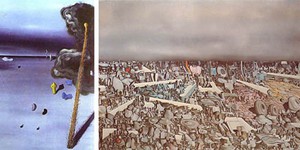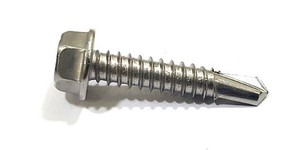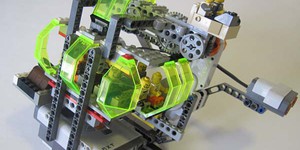Others Like “Classical Music and Cognitive Tasks” (top 20 results)
|
Walk into any music store and you'll find a dizzying array of string choices for your classical guitar, including rectified nylon, clear nylon, carbon fluoride, bronze wound, phosphor bronze wound, silver-plated copper wire, Polytetra-flouro-ethylene (PTFE), each in a range of tensions from low to high. There is no single best brand or best material. All have their advantages and disadvantages. A set of strings that sounds "sparkling" on one guitar might sound dull on another, primarily because…
Read more
We've all heard that "practice makes perfect," but what is the best way to practice? For example, does "mental practice" do any good? You'll need at least 9 volunteers for this project. Pick a well-defined sports activity, with a measurable outcome, such as shooting basketball free-throws (measure number of shots taken and number of shots made), or balancing on one foot on a slightly raised beam (measure how long you can do it; if it's too easy, try closing your eyes). Test all volunteers…
Read more
What do a guitar, a piano, a harp and a violin have in common? Turns out a couple of things, including a soundboard. All stringed instruments use a soundboard to amplify (greatly increase) the volume of the sound coming from vibrations of the strings. The soundboard is positioned so that it gathers the sound vibrations coming from the strings and then retransmits them at an even greater volume when it begins to vibrate. Soundboards are common in the world of musical instruments, but they can…
Read more
This project can apply to soccer, hockey, baseball and many other sports. What is the effect of stopping the kick/shot/swing at the moment of impact vs. following through? Think of a way to measure the outcome in each case, and explain your results. (idea from Gardner, 2000, 83-85; for more information with regard to specific sports, see: Barr, 1990, 12-14; Gay, 2004, 142-144; Adair, 2002, 30.)
Read more
Aerodynamics and Hockey: Does the Force of Drag Have an Effect on the Distance the Puck Will Travel?
Think of a way to launch the puck with a reproducible force, and examine the effect of launching the puck in different orientations on the distance it travels. For more information on the physics, see Haché, 2002.
Read more
Have you ever bitten into a thick, fragrant casserole and tasted the layers of flavor? Or maybe you've licked of a vanilla ice cream cone and thought, "This is so pure, simple, and refreshing!" These observations about the taste of the food are also comments on its texture—the casserole is complex and thick, and the vanilla ice cream cone is simple and thin. You might not realize it, but sound can also have texture. In this music science fair project, you'll learn how to "taste" the…
Read more
Try different wind turbine/propeller (chord length, pitch) designs by making models from balsa wood. Connect the spinning axle to a DC motor and measure the voltage produced across a resistor to measure power output. Use fan as wind source. (Judge, 2004)
Read more
When you think of a machine, you probably think of computers or robots. But what if I told you that machines have been around for centuries? Would you believe me? Try this experiment to see which of these simple machines you use around your house. You might even use some of them everyday!
Read more
Maybe this has happened to you: you're going shopping with one of your parents and the parking lot is really crowded. You're helping out, scouting for an empty space. You see someone heading toward their car, taking their keys out, and you point them out. At last, you're going to get a spot. You wait for the person to pull out so you can park. Does it take them longer because you're waiting? Do they move out faster? Or does it just seem that they do? For information on people's…
Read more
If you ever rode in a cable car, ski lift, or gondola, you know they make moving over obstacles like lakes, valleys, rivers, or even up steep mountains seem easy. Though it would be pretty difficult to build a full-size cable car in your home, if you have a Mindstorms® kit, you can build a working-model cable car of your own. The engineering challenge is to build a LEGO® cable car that can travel across a string you have suspended somewhere in your house (between two pieces of…
Read more
|
Explore Our Science Videos
Homemade Hand Sanitizer Gel
Race Through Space with Gravity Assist Maneuvers
Transform Yogurt into Spheres With Reverse Spherification








